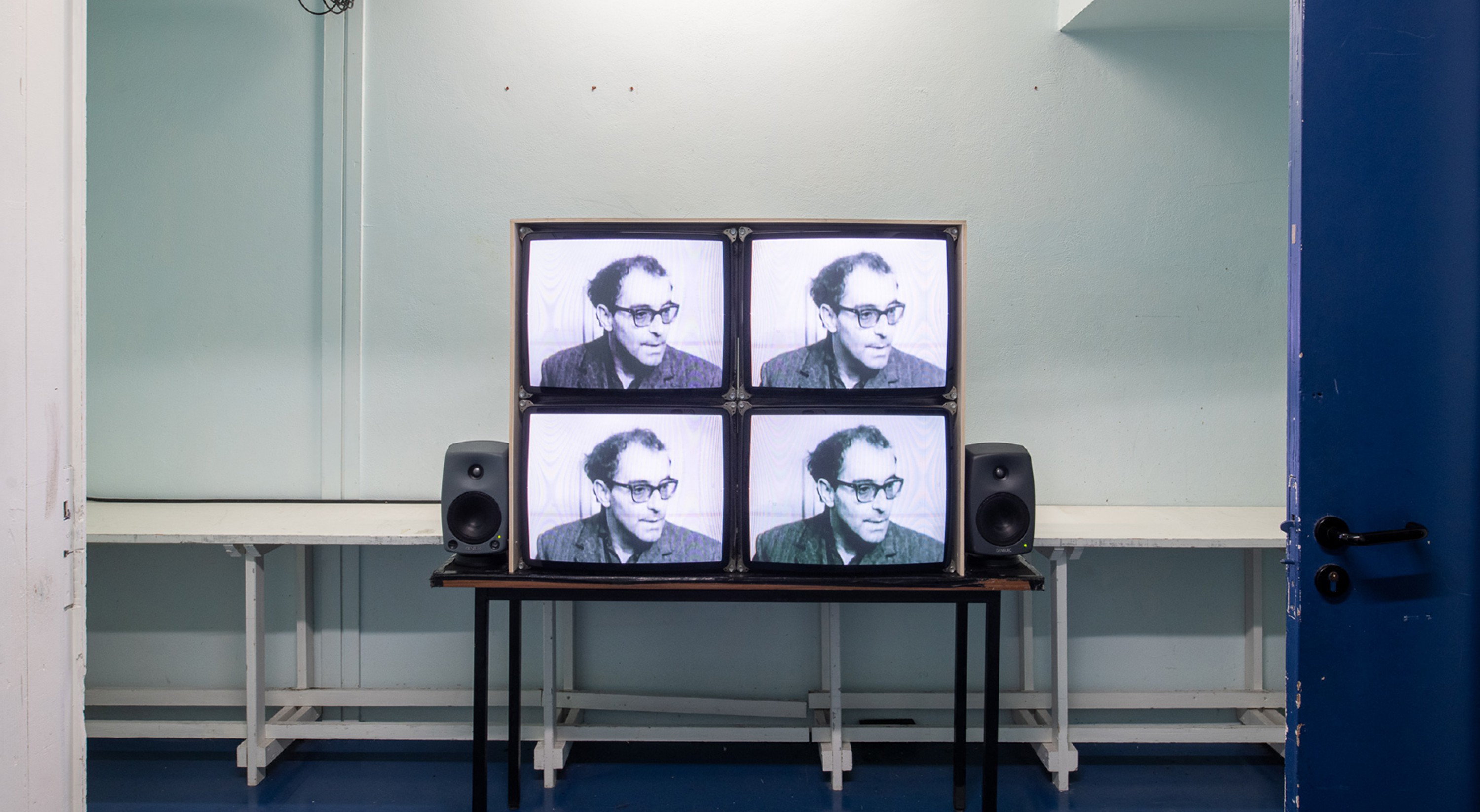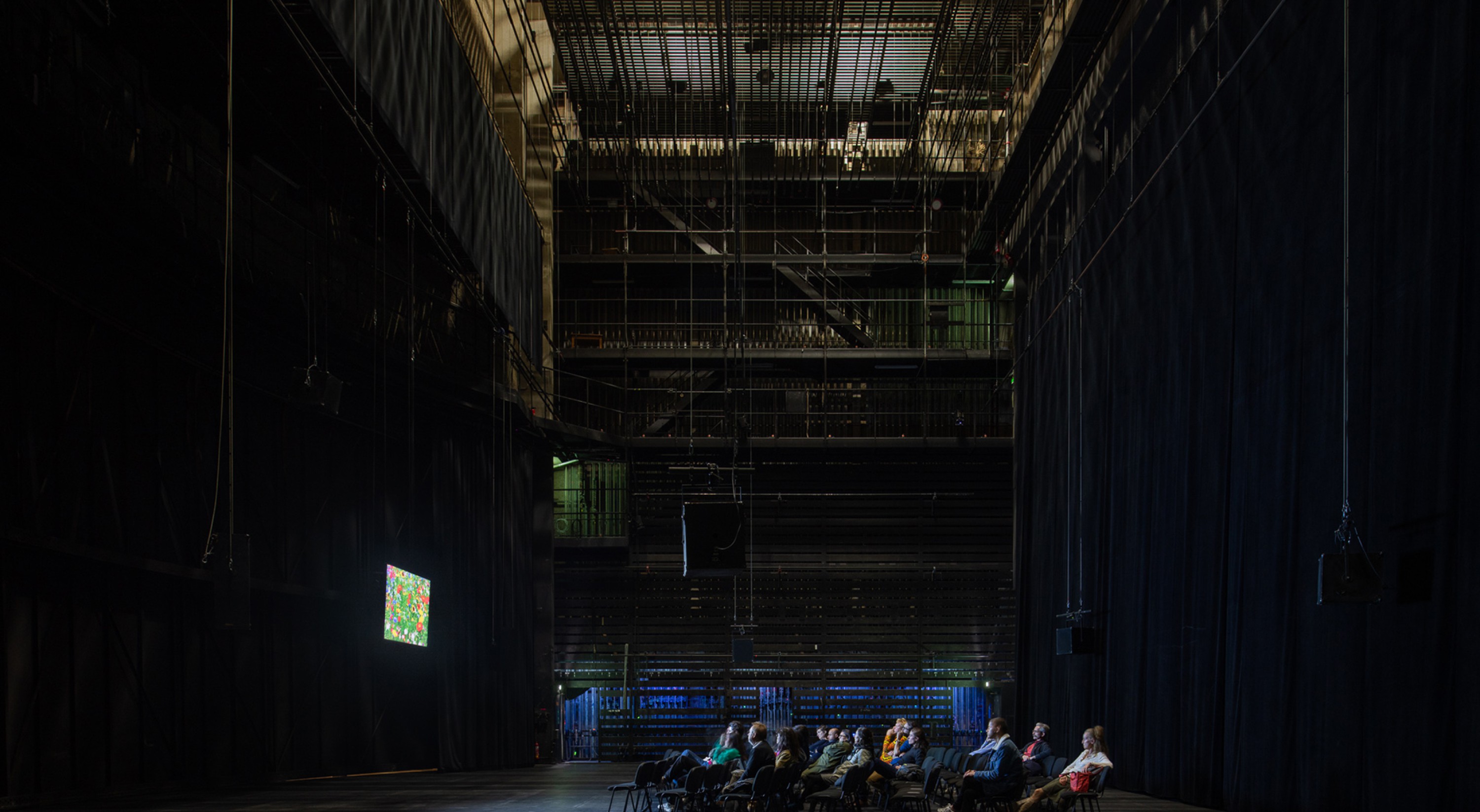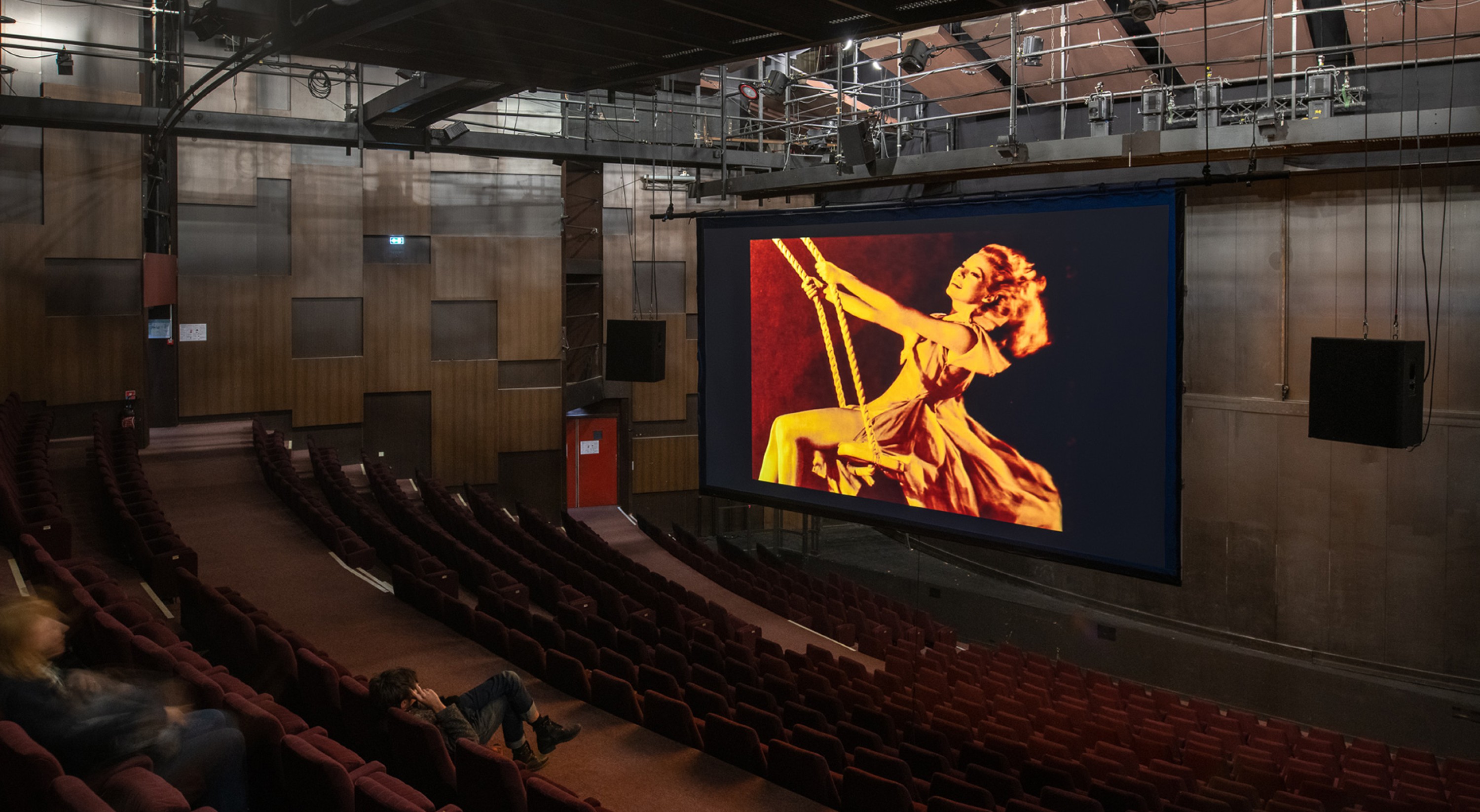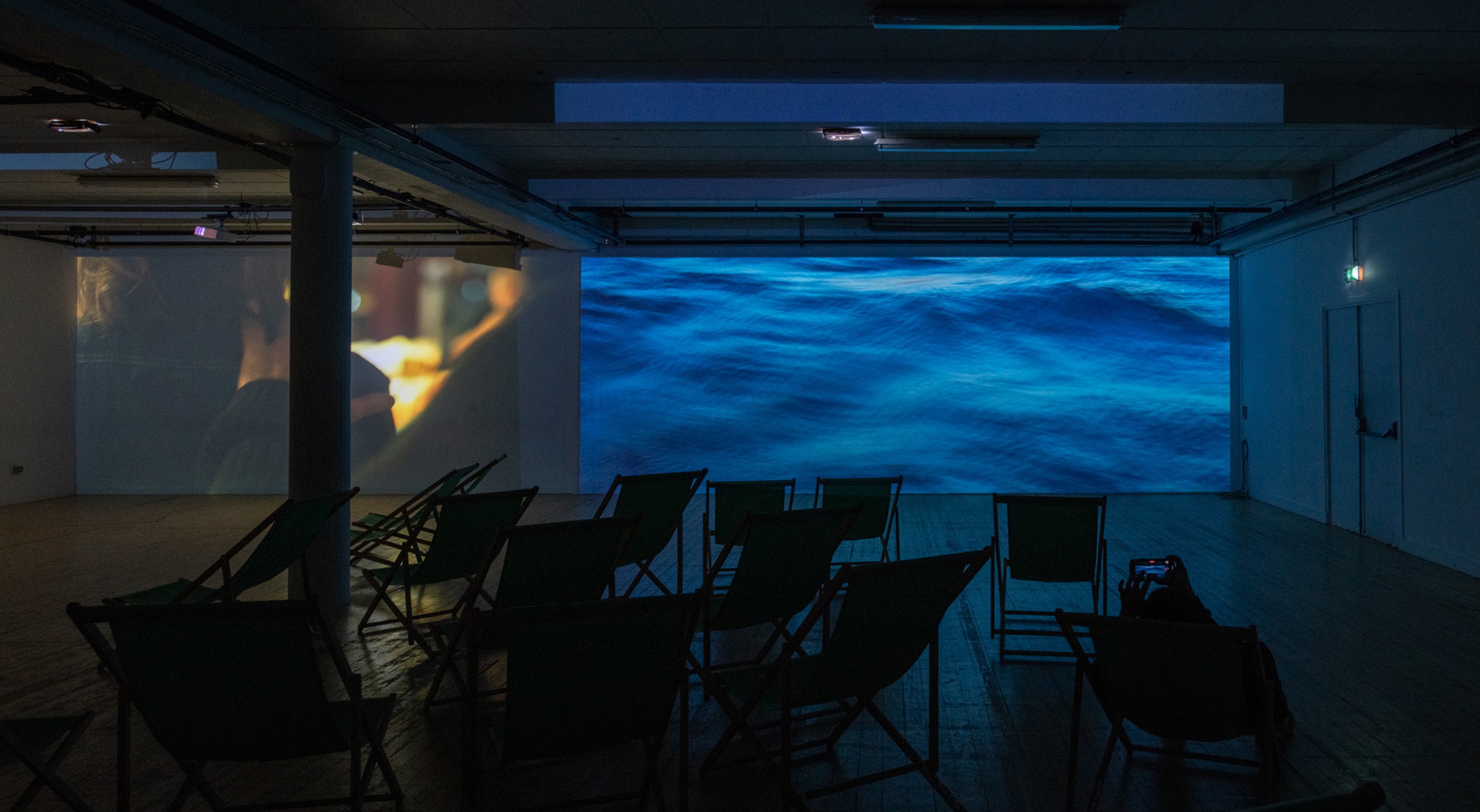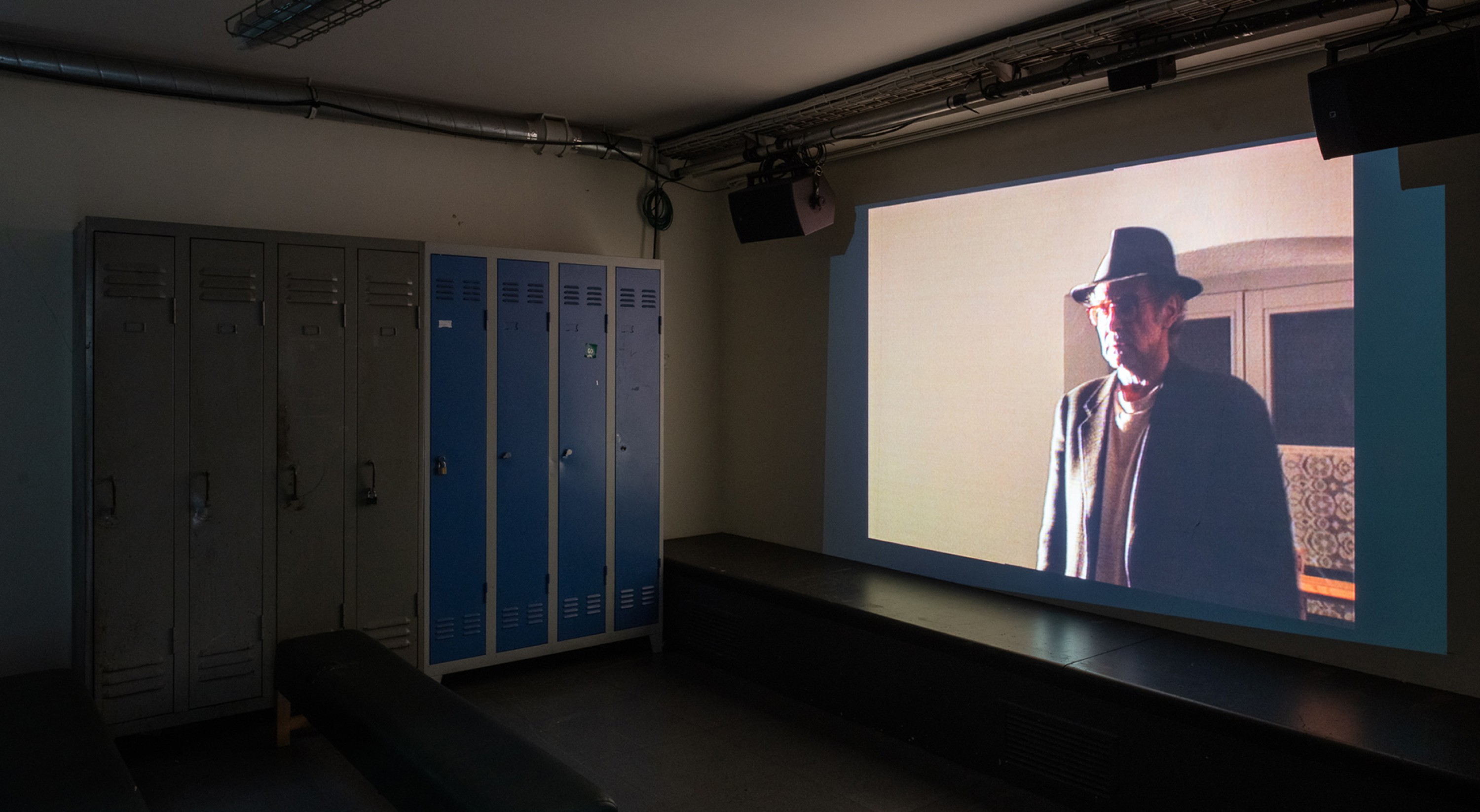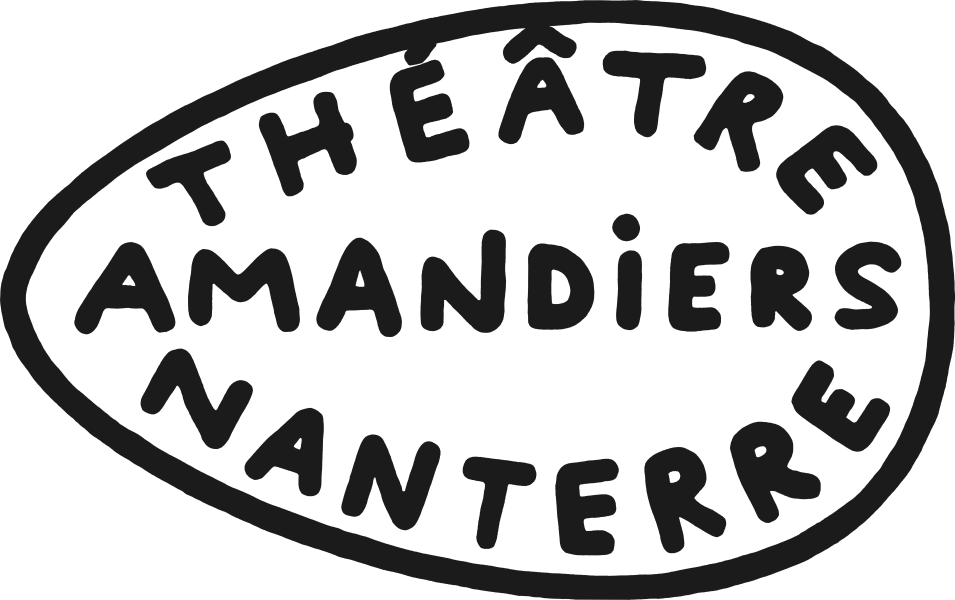Jean-Luc Godard
Parcours Livre d’image
octoberoct 4 – 20
Conceived and directed by Jean-Luc Godard
Artistic collaboration, Fabrice Aragno, and Jean-Paul Battaggia
Archaeology, Nicole Brenez
Produced by Le Livre d’image, Casa Azul Films ; and Écran Noir Production
Coproduced by Nanterre-Amandiers centre dramatique national ; and Festival d’Automne à Paris
This autumn, Nanterre-Amandiers will be opening its doors to Jean-Luc Godard and unfurling Le Livre d’image. This new opus sees Jean-Luc Godard moving away from cinema halls and into non-habitual spaces. Accordingly, the presentation of the film will be accompanied by other works by the film-maker spread across the different spaces of the theatre.
Le Livre d’image is a film divided, rather like the five fingers of the hand, into five chapters comprising images taken in the collective memory of cinema and the arts. Jean-Luc Godard saturates the colours, organises successions and superimpositions, shifts and variations in format and rhythm. He dubs them with his voice, sounds, texts read out aloud, and music. He does this to offbeat effect, rather like building a house with the remains of chateau, by adapting the shapes and experimenting with the contrasts. This enables him to trace a path through the major elements of human history that have left their market upon his films: war, the law, the other, elsewhere, the couple, impossible innocence, language and love.
Twenty years ago, he presented the last episode in the Histoire(s) du cinema series. Video, “the graveyard of cinema”, has made possible the exploration of cinematic art and its mutations. This time around, the Livre d’image draws upon these same elements in order to look at “a century finishing in the next”: the description of our present through the memory of cinema.
In a society saturated by images, Jean-Luc Godard makes cinema evolve in terms of its shape and its presentation, thereby pursuing one of the most accomplished of this art form’s different ambitions: the existence of a thought via the image and an image of the thought. Oscillating between fury and benevolence, the Livre d’image, a cinematographic poem of both destruction and despair, opens the possibilities of a cinema which reflects the world and continues to reinvent itself at the same time.
––––––
Au programme :
Le Livre d'image, 2018, 85′
Horaires : tous les ven. sam. dim. à 14h30, 16h30, 18h30 et 20h30
Jauge réduite, réservation obligatoire
Parcours de films
• Éloge de l’amour, 2001, 97′
Horaires : tous les ven. sam. dim. à 14h
• Notre musique, 2004, 80′
Horaires : tous les ven. sam. dim. à 16h
• Film Socialisme, 2010, 101′
Horaires : tous les ven. sam. dim. à 18h
• Adieu au langage, version 3D, 2014, 70′
Horaires : tous les ven. sam. dim. à 20h
Autres courts et longs métrages diffusés en continu :
Films de Jean-Luc Godard :
• Quand la gauche aura le pouvoir, 1977, 3’34
• Changer d’image. Lettre à la bien-aimée, 1982, 9’50
• King Lear, 1987, 90′
• Armide, 1987, 12′
• On s’est tous défilé, 1987, 13′
• Puissance de la parole, 1988, 25′
• Le Dernier Mot, 1988, 12′
• Allemagne 90 neuf zéro. Solitudes, un état et des variations, 1991, 62′
• Plus Oh !, 1996, 4′
• Adieu au TNS, 1996, 7’20
• Dans le noir du temps, 2002, 10′
• Prière pour refusniks (1) & (2), 2004, 7′ et 3’30
• Il y avait quoi (pour Eric Rohmer), 2010, 4′
• Bande-annonce pour le festival de Jihlava, 2018, 1′
Films de Jean-Luc Godard et Anne-Marie Miéville :
• Le Rapport Darty, 1989, 50′
• Deux fois cinquante ans de cinéma français, 1995, 51′
• Reportage amateur (maquette expo), 2006, 47′
Films d’Anne-Marie Miéville :
• Couple représenté en Mars et Vénus, 1990, 2′
• Nous sommes tous encore ici, 1997, 80′
• Après la réconciliation, 2000, 74′
• Dans le temps, 2006, 4′
• Souvenir d’utopie, 2008, 6′
Films de Fabrice Aragno :
• Quod Erat Demonstrandrum, 2012, 26′
• Poussières, 2018, 2′
• Suite(s) Lacustre(s), 2019
Films et sons de Paul Grivas :
• Film Catastrophe, 2018, 55′
• Boucles Socialistes (sons + photographies), 2019
Detailed programme Here
––––––
Price: 10€ from 14h to 22h
In the same place
